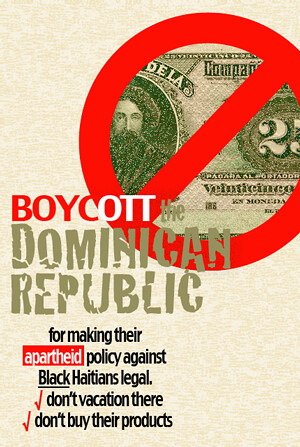 Is the global economic crisis a manufactured opportunity for a "structural adjustment" of 1st world nations? Asere at Malcolm X Grassroots Movement (MXGM) explores the economic and human rights consequences in an essay entitled "The Hold Up."
Is the global economic crisis a manufactured opportunity for a "structural adjustment" of 1st world nations? Asere at Malcolm X Grassroots Movement (MXGM) explores the economic and human rights consequences in an essay entitled "The Hold Up."Now that the financial bubble created by the big banks and Wall Street has burst, leaving people confused and disoriented from the shock, the "cartels" have succeeded in shifting the responsibility and consequences to taxpayers, nationalizing their debt/risk through passage of the unpopular 800 Billion bailout known as the Housing and Economic Recovery Act of 2008.
The big banks and investment companies created the financial crisis when they began the criminal practice of valuing debt/risk as assets and selling the bundled debt as "securities" to global investors. The current seismic financial shift will maneuver the affected communities closer to the financial condition of the world's poor majority, lowering their standard of living. The cycle of debt, dependency and indentured servitude is keeping the world enslaved to the global banking system (IMF, World Bank) that takes its orders from Washington and the other nations of the G7.
Many in the global north (North America, Europe, Scandinavia...etc) have no real concept of the conditions that exist in the global south, in the slums of Haiti, India, Philippines, Indonesia, Latin America, Africa... etc. Now the global North are realizing that they too are at the mercy of the policy makers who, aligned with the richest 1 percent are "centralizing" the global economy, consolidating economic power and redistributing the wealth. In the U.S. the target is the working class gains made during the decade following the October 1929 stock market crash; such as the social security act, the minimum wage, unions (National Labor Relations Act of 1935) and the 40 hour work week. "Today all these social and economic gains are under attack."1 So structural adjustment has come to the the U.S. and the global north.
Structural adjustment has been a part of U.S. policy in Latin America, the Caribbean, Africa and other "developing countries" since the 1950s. In Haiti the Clinton administration demanded as a condition of restoring Aristide to power (after a U.S. supported military coup) the implementation of a structural adjustment program -- to the detriment of the Haitian people.
For decades, two sometimes divergent, sometimes convergent streams of U.S. policy have played an influential role in defining the economic and political system of Haiti, the poorest country in the Western Hemisphere. Economic policy has steadily supported the interests of U.S. investors and exporters. U.S. political interests in Haiti have been less unified, careening between support for democracy and development and traditional U.S. collusion with the elites and the military. Too often, the interests of the Haitian people, who live in the poorest country in the Western hemisphere, have been sacrificed for the imperatives of Washington policymakers.The failure of U.S. foreign policy is evidenced by the global financial crisis. And the feeding frenzy of these "gangstas" on the developing world's resources could not be stopped at America's shores. The U.S. controlled global banking system is now feeding on U.S. communities. The U.S. is in the process of becoming the "banana republic" that it has so long ridiculed in "developing countries," while
U.S. Policy in Haiti by Lisa A. McGowan
"The greatness of a nation is not measured by the height of its buildings or its steel output or its military might but by these three factors:
1. the rights and opportunities it extends all its citizens, especially the lowliest
2. the manner in which it absorbs and responds to the criticism of its citizenry and the world
3. the willingness and ability of its citizens to question and actively resist the propaganda of that nation's elites ... "
More of the essay here. at Charles Hugh Smith's website
Further info:
1History shows potential for mass struggle by Milt Neidenberg
The Shock Doctrine - Naomi Klein
Dismantling the American Dream - by Kenneth Buchdahl
Life And Debt (2001) - Documentary directed by Stephanie Black





No comments:
Post a Comment